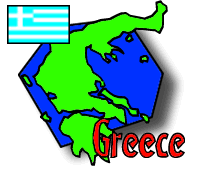Person of the Day: Pericles
Place of the Day: Athens
Tech Fact of the Day: olive tree
Group Dispatch, March 9-10

Questions? Ask Anthony ![]() !
!
Return to Fast Facts
 |
 |
 |
 |
 |
|
Itinerary/ Journal |
Discussions |
About Greece |
eDscape Projects |
Scrapbook |
|
|
|
|
|
|
|
Copyright 1997-99 BikeAbout. All rights reserved.

